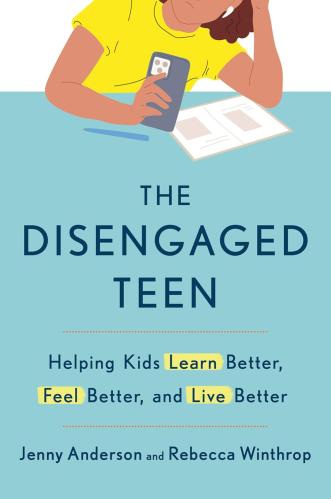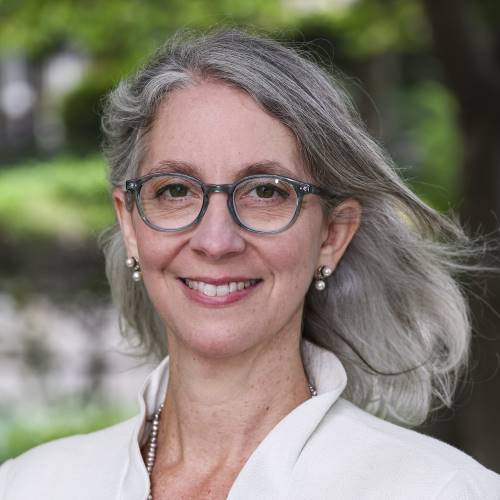


Rebecca Winthrop is a senior fellow and director of the Center for Universal Education at the Brookings Institution. Her research focuses on education globally, with special attention to the skills young people need to thrive in work, life, and as constructive citizens.
Winthrop works to promote quality and relevant education, including exploring how education innovations and family and community engagement can be harnessed to leapfrog progress, particularly for the most marginalized children and youth. She advises governments, international institutions, foundations, civil society organizations, and corporations on education issues. She currently serves as a board member and adviser for a number of global education organizations and lectures at Georgetown University.
She currently leads the Brookings Global Task Force on AI in Education and co-leads the Family Engagement in Education Network. She has served as the chair of the U.N. Secretary General’s Global Education First Initiative’s Technical Advisory Group, helping to frame an education vision that focuses on access, quality, and global citizenship. With UNESCO Institute of Statistics, she co-led the Learning Metrics Task Force that involved inputs from education professionals in over 100 countries to identify how to measure what matters in education systems. She has been a member of numerous other global education initiatives including the G-20 Education Task Force, the Mastercard Foundation’s Youth Learning Advisory Committee, the World Economic Forum’s Global Agenda Councils on education, and an education adviser to the Clinton Global Initiative.
Prior to joining the Brookings Institution in June 2009, Winthrop spent 15 years working in the field of education for displaced and migrant communities. As the head of education for the International Rescue Committee, she was responsible for the organization’s education work in over 20 conflict-affected countries. She has been actively involved in developing the evidence base around and global attention to education in the developing world. In her prior position, she helped develop global policy for the education in emergencies field, especially around the development of global minimum standards for education in contexts of armed conflict and state fragility.
Winthrop has authored numerous articles, reports, books, and book chapters, including most recently “The Disengaged Teen: Helping Kids Learn Better, Feel Better, and Live Better” with her co-author, award-winning journalist Jenny Anderson. She has also authored “Transforming Education Systems: Why, What, and How” with Hon. Minister David Sengeh; “Collaborating to Transform and Improve Education Systems: A Playbook for Family-School Engagement” with Adam Barton, Masha Ershadi, and Lauren Ziegler; “Leapfrogging Inequality: Remaking Education to Help Young People Thrive” with Adam Barton and Eileen McGivney; “Beyond Reopening Schools: How Education Can Emerge Stronger Than Before COVID-19” with Emiliana Vegas; “Addressing Education Inequality with a Next Generation of Community Schools: A Blueprint for Mayors, States, and the Federal Government” with the Brookings Task Force on Next Generation Community Schools; and “The Need for Civic Education in 21st Century Schools.” Her work has been featured in the BBC, ABC News, CNN, NPR, the Wall Street Journal, the Washington Post, the New York Times, Newsweek, Time Ideas, NPR, the Economist, the Financial Times, the Guardian, Bloomberg News, Glamour, and CSPAN, among others.
She was educated at Columbia University Teachers College (Ph.D., 2008); Columbia University School of International and Public Affairs (M.A., 2001); and Swarthmore College, (B.A., 1996).
Latest book

Jenny Anderson, Rebecca Winthrop
January 7, 2025